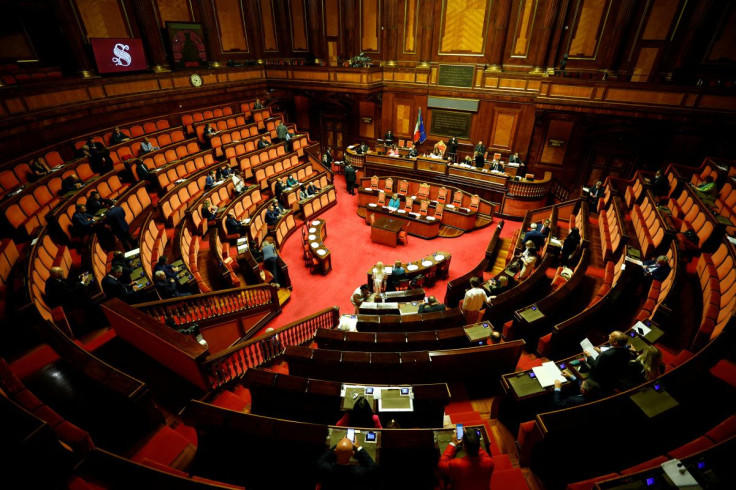Draghi's Italian Government Faces Collapse After 5-Star Rebels

Italian Prime Minister Mario Draghi's coalition government risked collapse on Thursday after the 5-Star Movement, one of its members, failed to support a parliamentary confidence vote including measures to offset the cost of living crisis.
The confidence vote has become a focal point for tensions within Draghi's broad coalition as its parties prepare to fight each other in a national election due by early 2023.
Draghi, the former head of the European Central Bank, has raised the stakes by saying he would not want to lead a government without 5-Star, who emerged as the largest party in the previous election in 2018 but have since suffered defections and a loss of public support.
After the vote, a government source said Draghi went directly to see President Sergio Mattarella, the supreme arbiter in Italian politics, who will have to decide how to resolve the crisis.
The confidence vote, which was passed 172 votes to 39, was used to expedite parliamentary clearance of multi-billion euro aid package which also includes a provision allowing the city of Rome to build a giant trash incinerator.
5-Star has been pressing Draghi to do more to help cushion rising living costs by raising government borrowing and has also long opposed the incinerator project.
The 5-Star decision plunged Italy into political uncertainty and risks undermining efforts to secure billions of euros in European Union funds, tackle a damaging drought and reduce its reliance on Russian gas.
It could also lead to national elections as early as September or October.
Italy is due to vote by the first half of next year and tensions have been rising between members of a coalition that has been in place since early 2021 and straddles both sides of the political divide.
The risks of a collapse of a Draghi government rippled through financial markets where Italian bond yields rose sharply, indicating investors demanding a higher premium to hold its debt, and shares fell.
Italy's rising borrowing costs have been complicating the European Central Bank's efforts to keep inflation caused by rocketing energy prices under control.
(Writing by Keith Weir; Editing by Crispian Balmer and Alison Williams)
© Copyright Thomson Reuters {{Year}}. All rights reserved.





















